Document Upload Guide
To qualify for Purpl Membership, you will need to upload one of the documents listed. We need the photo of your document to be clear and in focus and displaying the right information so that we can identify you – check the document guides below for more details. We cannot accept any disability benefit letters that are more than two years old, unless they have an expiry date printed on them.
Please review our common issue troubleshooting page as well for further help.
Please ensure you take a photo of the entire letter / card, as we need to see all information for verification.
- Make sure you take the photo in good light
- Place the document on a flat surface
- Remove anything that is causing a shadow on the document
- Make sure that your photo contains the whole document or card
- Try and take the photo from above the document, instead of at an angle
- Avoid using a flash to take the photo
- Check that the photo is clear and in focus before uploading it
- If you file is too large, it won’t upload so try taking a screenshot of the photo
- You cannot upload a PDF
Accepted Documents
We accept the following ‘proof of disability’ documents. Please ensure you take a photo of the entire letter / card, as we need to see all information for verification. Click on your document for more information and photo examples.
All benefit letters must be dated within the last two years, unless they have a future valid expiry date or ‘Ongoing’ award which is 10 years from date award was given.
- Blue Badge (reverse side only showing photo)
- Personal Independence Payment (PIP)
- Attendance Allowance
- Disability Living Allowance (DLA)
- War Disability Pension Letter
- Adult Disability Living Payment Scotland
- Child Disability Living Payment Scotland
- Disabled Bus Pass
- Disabled Railcard
- Access Card
- Disabled ID (DID) Card – suitable for ADHD/Autism etc
- CEA Card
- Access to Work Letter
- NHS Diagnosis Letter
- LCWRA/Employment Support Allowance (ESA)
- Motability Letter
- Disabled Student Allowance
- Certification of Vision Impairment (CVI)
Please note we don’t accept any of the following:
- Text Messages
- Bank Statements
- Digital Letters without further evidence
- Sick notes
- Any disability card not listed above
If you require further help please contact us [email protected] – keep an eye out for our reply as it may fall into your junk folder.
1. Blue Badge – Photo Side – Please ensure your photo is clear and the entire card is shown.
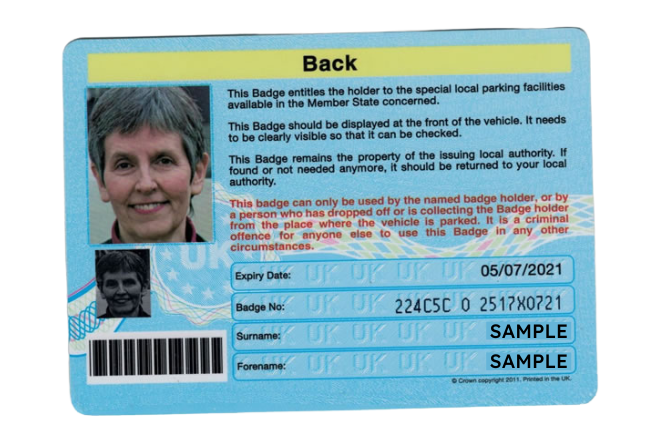
A Blue Badge provides parking concessions for people with disabilities, allowing them to park closer to their destination. In the UK, Blue Badges are issued by local authorities.
You will require documents to support your application. This may include proof of identity (such as a passport or driving licence), proof of address, a recent passport-size photo, and documents confirming your eligibility (such as a letter from your doctor or medical specialist).
In some areas, there may be a fee for processing your Blue Badge application. Check the fee requirements for your local authority and ensure payment is included with your application if necessary.
For more information or to apply for a blue badge, please visit https://www.gov.uk/apply-blue-badge
2. Personal Independence Payment (PIP) Award Letter – Please ensure your photo is clear and shows the entire letter. It must show your NI number, name, address, date of award and expiry date if applicable
We cannot accept letters that are more than two years old that do not have an Award expiry date that is in the future.
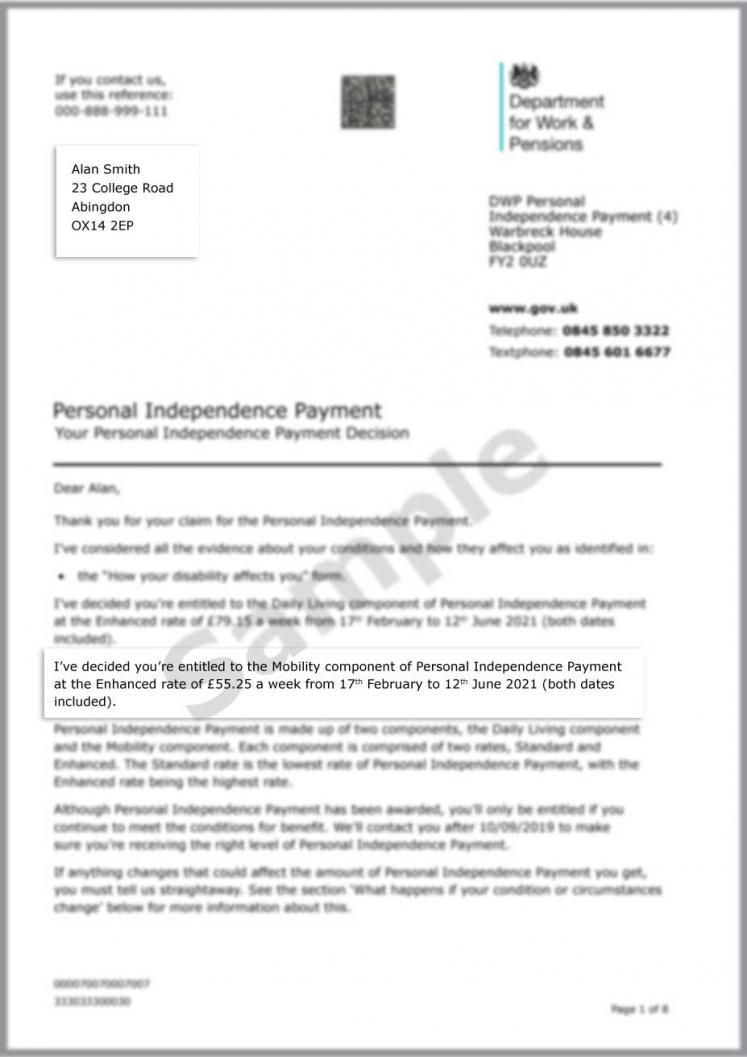
PIP is designed to help people with long-term health conditions or disabilities aged 16 to State Pension age (the age at which you can claim your State Pension) maintain their independence by contributing towards the extra costs they may face.
If you cannot find your PIP document, you can contact the government to get a certificate of entitlement which you can then upload – click here for more information
PIP is not means-tested, so it doesn’t depend on your income or savings, and you can receive it whether you’re working or not.
Before applying for PIP, ensure you meet the eligibility criteria. You may qualify if you’re aged 16 to State Pension age, have a health condition or disability where you have had difficulties with daily living or getting around (or both) for at least three months, and expect these difficulties to continue for at least nine months.
Applying for PIP in the UK involves gathering supporting documents, completing the application form accurately, and providing detailed information about your condition. By following these steps, you can access the financial support you need to help manage your disability or health condition.
To apply for a Personal Independence Payment, please visit https://www.gov.uk/pip/how-to-claim
3. Attendance Allowance Award Letter – Please ensure your photo is clear and shows the entire letter. It must show your NI number, name, address, date of award and expiry date if applicable
We also accept the following proof of disability via manual verification: DLA Award Letter, Attendance Allowance Award Letter and Adult Disability Payment (Scotland). Please send
Attendance Allowance is a financial benefit provided by the UK government to support individuals aged 65 or over who have a disability or long-term illness that requires them to have care needs. This guide outlines the steps to apply for Attendance Allowance.
Before applying for Attendance Allowance, ensure you meet the eligibility criteria. You may qualify if you’re aged 65 or over, have a physical or mental disability that requires you to have care needs, and have had these needs for at least six months (unless terminally ill).
Applying for Attendance Allowance in the UK involves gathering supporting documents, completing the application form accurately, and providing detailed information about your condition and care needs.
To find apply for Attendance Allowance, click here https://www.gov.uk/attendance-allowance/how-to-claim
4. Disability Living Allowance (DLA) – Please ensure your photo is clear and shows the entire letter. It must show your name, address, date of award and expiry date if applicable. You may apply for your child – use their name with your email address.
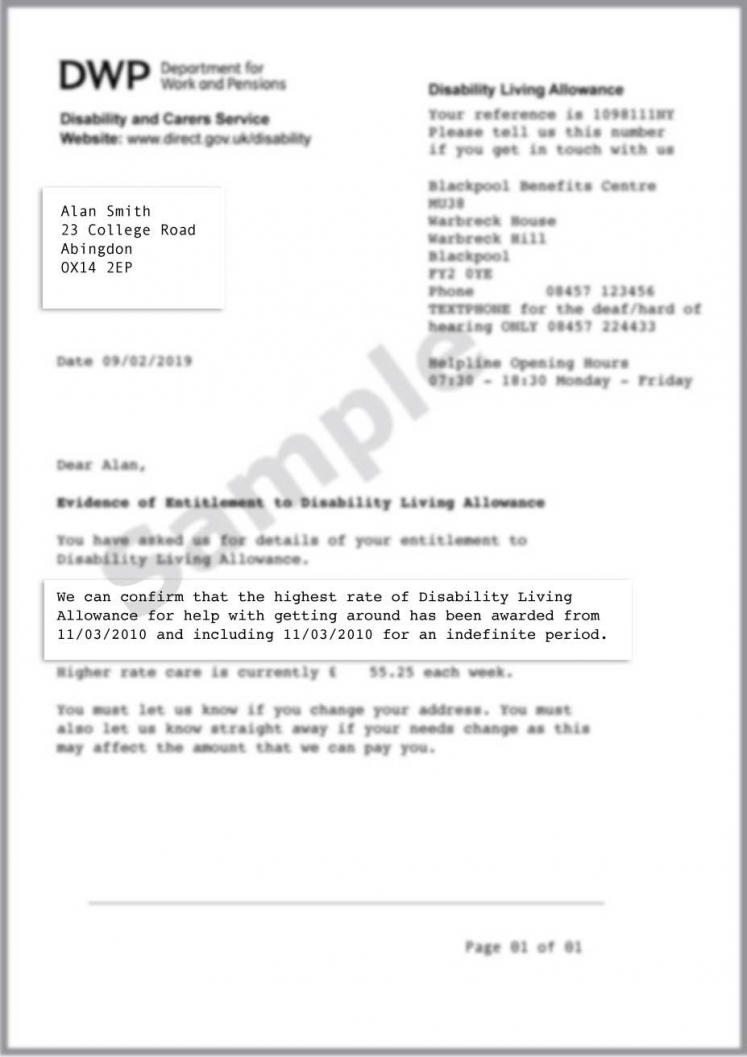
Disability Living Allowance (DLA) is a benefit provided by the UK government to help with the extra costs of long-term ill health or disability for children under 16. This guide outlines the steps to apply for DLA.
Applying for Disability Living Allowance (DLA) for children in the UK involves gathering supporting documents, completing the application form accurately, and providing detailed information about the child’s condition and care needs. By following these steps, you can access the financial support your child needs to help manage their disability or long-term illness.
To apply for DLA, please click here https://www.gov.uk/disability-living-allowance-children/how-to-claim
5. War Pension Disability Pension Award Letter – Please ensure your photo is clear and shows the entire letter. It must show your name, address, date of award and expiry date if applicable.
War Disability Pensions are typically awarded to veterans who sustained injuries or disabilities as a result of their service in the armed forces.
Veterans UK is the government agency responsible for providing support and services to veterans in the UK.
To find out more, click here https://www.gov.uk/guidance/war-pension-scheme-wps
6. Adult Disability Living Payment (Scotland) – Please ensure your photo is clear and shows the entire letter. It must show your ref number (top left) name, address, date of award and expiry date if applicable.
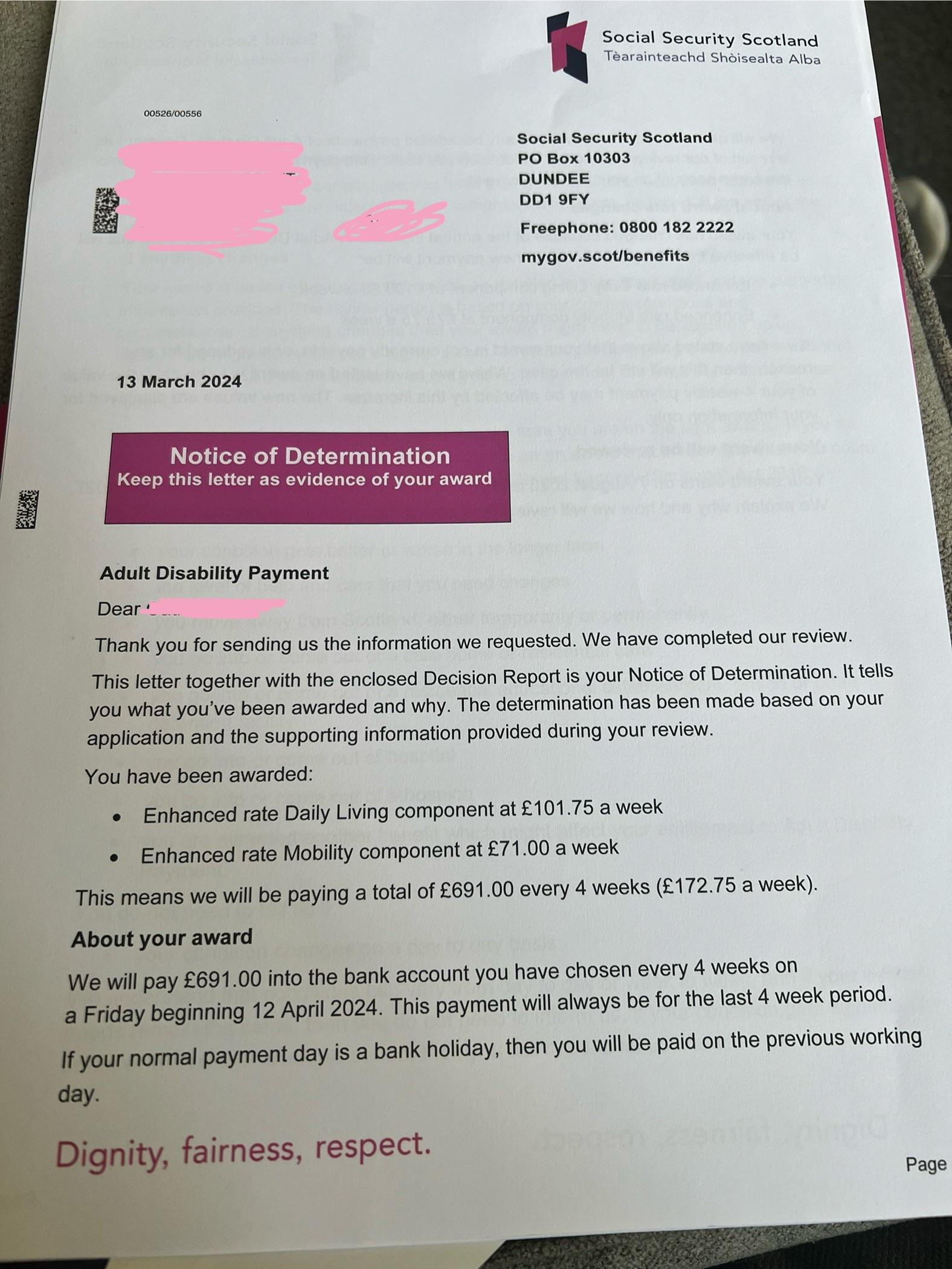
Adult Disability Living Payment (DLA) is a benefit provided by the UK government to help with the extra costs of long-term ill health or disability for individuals aged 16 or over. This guide outlines the steps to apply for DLA in Scotland.
Applying for Disability Living Allowance (DLA) in Scotland involves gathering supporting documents, completing the application form accurately, and providing detailed information about your condition and care needs. By following these steps, you can access the financial support you need to help manage your disability or long-term illness.
To apply for Adult Disability Living Payment Scotland please click here https://www.mygov.scot/adult-disability-payment/how-to-apply
7. Child Disability Living Payment Scotland – Please ensure your photo is clear and shows the entire letter. It must show your name, address, date of award and expiry date if applicable. You may apply for your child – use their name with your email address.
Child Disability Payment is a benefit provided by the Scottish Government to help with the extra costs of caring for a child with a disability. This guide outlines the steps to apply for Child Disability Payment in Scotland.
Applying for Child Disability Payment in Scotland involves gathering supporting documents, completing the application form accurately, and providing detailed information about your child’s disability and care needs. By following these steps, you can access the financial support your child needs to help manage their disability and improve their quality of life.
To apply for Child Disability Living Payment Scotland click here https://www.mygov.scot/child-disability-payment
8. Disabled Bus Pass – Please ensure your photo is clear and shows the photo side of your bus pass
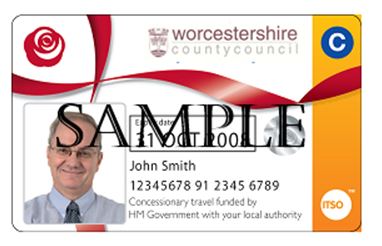
A Disabled Bus Pass, also known as a Disabled Person’s Freedom Pass in England, Wales, and Scotland, or a National Entitlement Card in Scotland, provides eligible individuals with free or discounted travel on buses and other public transport services. This guide outlines the steps to apply for a Disabled Bus Pass in the UK.
Applying for a Disabled Bus Pass in the UK involves contacting your local authority, completing an application form, and providing supporting documents to verify your eligibility. By following these steps, you can access free or discounted travel on buses and other public transport services, helping to improve your mobility and independence.
To apply for Disabled Bus Pass, click here https://www.gov.uk/apply-for-disabled-bus-pass
9. Disabled Railcard – Please ensure your photo is clear and shows the photo side of your railcard. If uploading a digital card ensure we can see your full card details including expiry date, card number and QR code. You may need to upload two image one after the other.
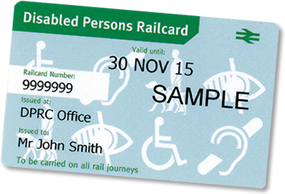
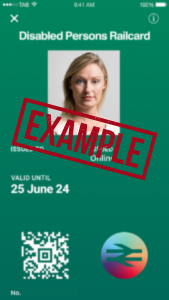
A Disabled Persons Railcard offers discounted rail travel for individuals with disabilities or those who have certain health conditions that affect their mobility. This guide outlines the steps to apply for a Disabled Persons Railcard in the UK.
Applying for a Disabled Persons Railcard in the UK involves completing an application form, providing proof of eligibility, and paying any applicable fee. By following these steps, you can access discounted rail travel and enjoy greater mobility and independence.
To apply for a disabled railcard or to get further advice, please click here https://www.disabledpersons-railcard.co.uk/using-your-railcard/how-to-apply/
10. Access Card – Please ensure you upload your name and card number exactly as they appear on your Access Card. If this fails, it might be because of a special character. If so, select ‘Other’ and upload a photo and we will manually verify.
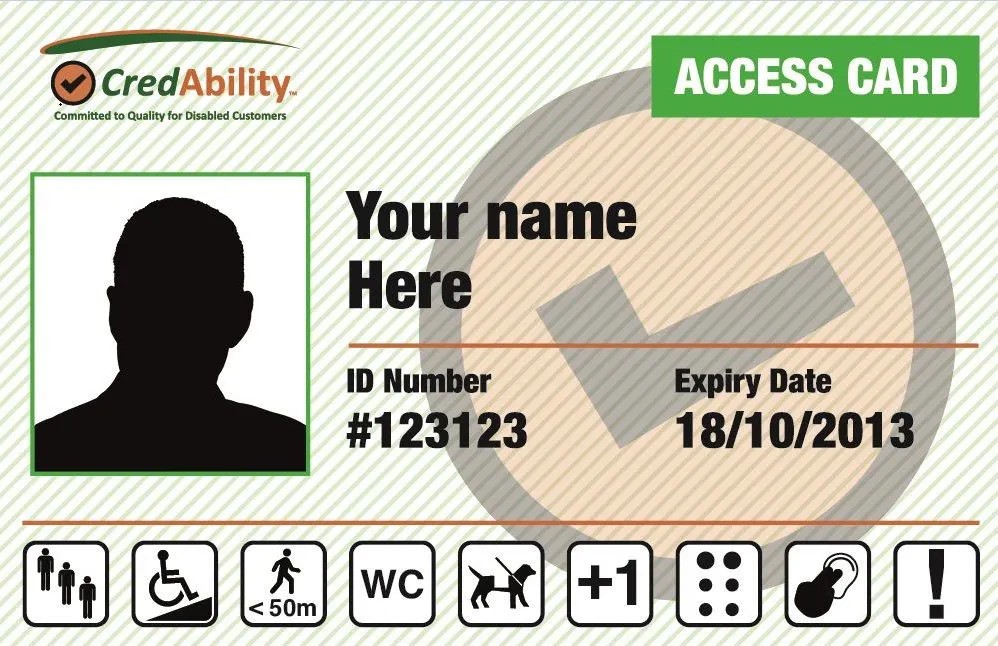
An Access Card is a widely recognised proof of disability scheme in the UK that provides access to accommodations and adjustments at various venues and services. This guide outlines the steps to apply for an Access Card.
Applying for an Access Card in the UK involves choosing the appropriate scheme, completing the application form, providing supporting documents, and paying any applicable fee. By following these steps, you can access accommodations and adjustments that support your participation in various venues and services.
To apply for an Access card, please click here https://www.accesscard.online/apply-or-renew/
11. Disabled ID (DID) Card – Please ensure your photo is clear and shows the photo side of your Disabled ID (DID) Card
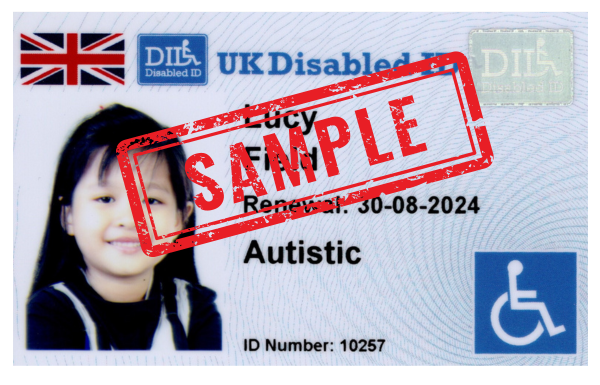
We accept Disabled ID (DID) Cards – as long as you have evidence of your disability then you can apply.
Established in 2014, they have thousands of members. Cost is £17 for two years. Select Purpl from the dropdown menu ‘how did you hear about us’ to get an extra 6 months added. To apply, please visit https://www.did-card.co.uk/apply-for-a-card/
12. CEA Card – Please ensure your photo is clear and shows the whole card
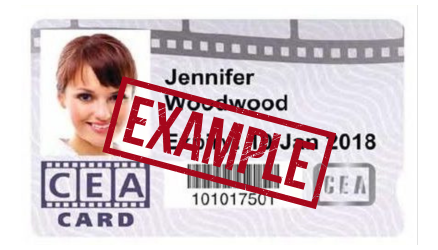
We are happy to accept a CEA Card as these are exclusively for the disabled community. In order to apply for a CEA card you will need to provide documents to confirm your disability status.
To apply for a CEA card, please visit https://www.ceacard.co.uk/
13. Access to Work – Please ensure your photo shows the entire letter with your NI number and date of grant
Access to Work is a grant that funds practical support if you have a disability, health or mental health condition. The aim is to help you start work, stay in work or be able move into self-employment or start a business.
To find out more or to apply, please visit https://www.gov.uk/access-to-work/apply
If you require further help, please contact us [email protected] – keep an eye on your junk folder for our reply.
14. NHS Diagnosis Letter
We can now accept an official NHS diagnosis letter if you provide:
A photo of a physical NHS letter with correct letterhead (not digital) that confirms an official diagnosis of a disability in accordance with the Equality Act 2010, ideally dated within the last five years. It should also contain a GP/Consultant name and signature.
If you do not have a physical copy of your diagnosis letter you can request that your doctor/consultant sends you a copy that you can forward to us with their email details on so that we can confirm it is genuine. Or provide a secondary document that backups your initial letter that is a hardcopy. These processes are in place to ensure that no one accesses our discounts that shouldn’t.
